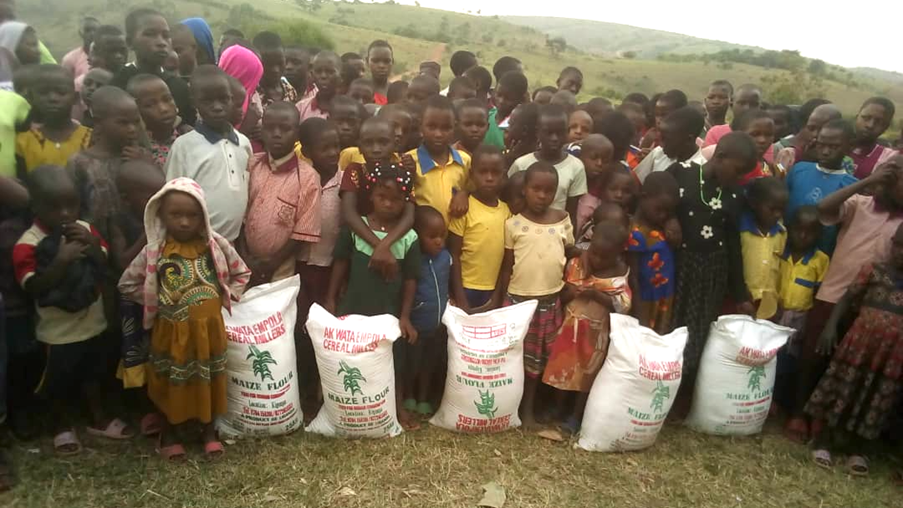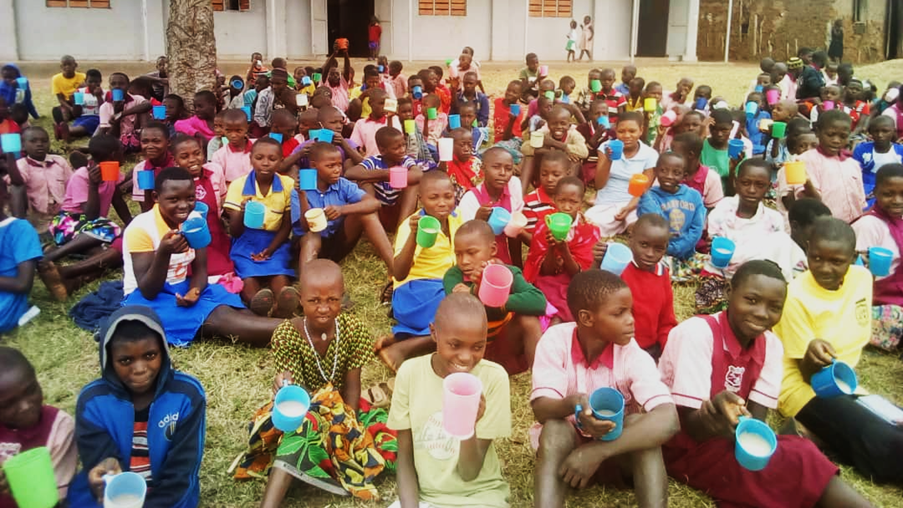It was fitting to celebrate and be glad, for this your brother was dead, and is alive; he was lost, and is found.'" (Luke 15:32)
This Sunday is the fourth Sunday of Lent, and the Gospel reading taken from Luke is the story of the Prodigal Son, which is one of my favourite parables. I love how Jesus provides the example of the Father’s immense generosity, compassion and mercy to teach us about who God really is.
The main message of The Prodigal Son is that it doesn’t matter how far we stray, or how much we squander the gifts God provides, he is always pleased when we turn back to him. His unconditional love is waiting for us to return home where he greets us with open arms. Every lost child (a sinner, meaning all of us) who is found (turns to God) is cause for the greatest celebration.
One interesting aspect of the Parable of the Prodigal Son is that we either seem to relate to the “good” child or the prodigal child. Our perspective can change over time, so it’s helpful to understand the parable from both perspectives.
If you relate to the Prodigal Son, look inside yourself and try and find God dwelling there. See the worth He sees in you. Ask him for forgiveness and welcome him into your soul. He forgives you!
If you relate more to the ‘good’ child, look no further than within your own heart. Are you happy with how God is treating you on a daily basis – by providing food and shelter, a job, a family? His unconditional love, comfort, and grace? I believe the answer would be YES for most people. God has given you all you need – and more. You are blessed.
Whether you relate to the prodigal child or the good child, the parable of the Prodigal Son is about living your life between you and God and not worrying about keeping score with anyone else. Be thankful God's there for you when you follow Him and will always be there to welcome you back if you fail him.
In this parable Jesus is highlighting the fact that sinners who were feared lost but come back to the fold are to be specially honoured because it is so hard to come back to the righteous path having left it and winning such people back to the heavenly side is something to be celebrated.
Parents & Friends Association
This year we are looking to further develop our Parents & Friends Association, as we see this as a very important support group for our College. Unfortunately, the last two years due to COVID-19 restrictions we were unable to meet regularly and hold our usual social and fundraising events. Meetings are open to and attended by interested parents/carers, friends of the College, teachers and administrative staff as well as the Principal, or one of the Deputy Principals.
Everyone is welcome to come and meet other parents/carers, to learn more about our wonderful College as well as participate and share in general discussion often relating to significant issues about school events. We are currently awaiting an update to the CECV School Operations Guide to provide further information regarding the health and safety guidelines for these meetings. Further information will be made available as it becomes available.
We would like for interested parents to please email the College at principal@crccs.vic.edu.au
Uganda Project
We continue to build on the very positive relationships that has been established between Catholic Regional College Caroline Springs and St Luke’s Parish, as well as our sister school St Francis Primary School in Kizinga Uganda.
By reaching out in friendship and solidarity with the community of St Francis, Kizinga we have given hope to hundreds of children and their families who otherwise could not access education. The support of our students has enabled the construction and furnishing of a brick classroom, a food program, the refurbishment of the church with a concrete floor and soon the installation of water tanks.
Compassion, empathy and love for one another are the cornerstones of our teaching at Catholic Regional College Caroline Springs and we are immensely proud of our community for continuing to embrace the Uganda Project.
Father Emma Kiwanuka, Parish Priest at St Luke’s Mannya recently delivered to St Francis Kizinga Primary School the produce for their food program, that we as a College community provide through our fundraising initiatives.
The St Francis community recently sent the following photos and passed on their immense thanks to our CRCCS community:


Archbishop Peter A Comensoli Patrick Oration
The Patrick Oration was delivered by Most Rev Peter A Comensoli, the ninth Archbishop of Melbourne, on 17 March 2022 at the Catholic Leadership Centre, East Melbourne.
I have included some key paragraphs from his oration below.
We might be keen for things to ‘get back to normal’ after the pandemic, but in our more thoughtful moments I’m sure we realise this cannot be the way ahead. We are at a liminal place – a threshold of transition. If we believe that it is by faith that we can seek healing, find our purpose, and live out our destiny, then we need to find the context of a life of faith in the domestic and among the generations. We need to embrace the transformative grace offered us at this threshold moment. But how?
Jesus did not – at any stage during his mission – build an institution or establish a social cause. He witnessed to the communion of his own ‘family’ (Father, Son, Spirit), and he spent his time among people in their households and neighbourhood communities. He barely spoke of the big events of his time; his teachings and stories were couched in family and community contexts; his healings were in homes or among small communities; he ate and drank a lot at friends’ places. Even as Jesus “set his face towards Jerusalem,” (Lk 9.51) he remained focused on the personal and the familial. And from the cross he formed the Church as a family: ‘Here is your son; here is your mother.’ (Jn 19.26-27)
Our ancestors in faith, the family of the early Church, took up the proclamation of Christ in this vein. There are many stories of the apostles going to households and neighbourhood communities to invite families into a common life in Christ. There is virtually no evidence throughout the New Testament of the Church engaging in the politics of the day or seeking to plant the works of the Church in public structures. The focus was personal and familial and communal.
Even the public proclamation of the kerygma, which Paul engaged in, was focused on the personal and familial, an invitation to live by faith, in hope, and through love among people. The early Church was a Church that assembled and passed on the faith in family homes. (1Cor 16.19) Might not this also be our calling at this time and place?
Pope St John Paul II said as much in a homily on a hot Perth afternoon in November 1986.
The home is the Church in miniature. The Church is the sacrament of God’s love. She is a communion of faith and life. She is a mother and teacher. She is at the service of the whole human family as it goes forward towards its ultimate destiny… The future of the world and of the Church, therefore, passes through the family.” (Homily, Perth, 30 November 1986)
This was a bold declaration, for it sought to locate the flourishing of humanity squarely in the domestic and the personal, and not in economic or political or cultural settings, nor in education or labour or enterprise. “The future of the world and of the Church,” he said, “passes by way of the family.”
For better or worse, in good times and bad, whether whole or broken, strong or vulnerable, we each come to be from a family, and we each live out the project of our lives within a family. No-one is an island; and any social theory that attempts to reconstruct human flourishing separated from its family roots is devoid of goodness.
Please click on the link below for the full Patrick Oration by Most Rev Peter A Comensoli



